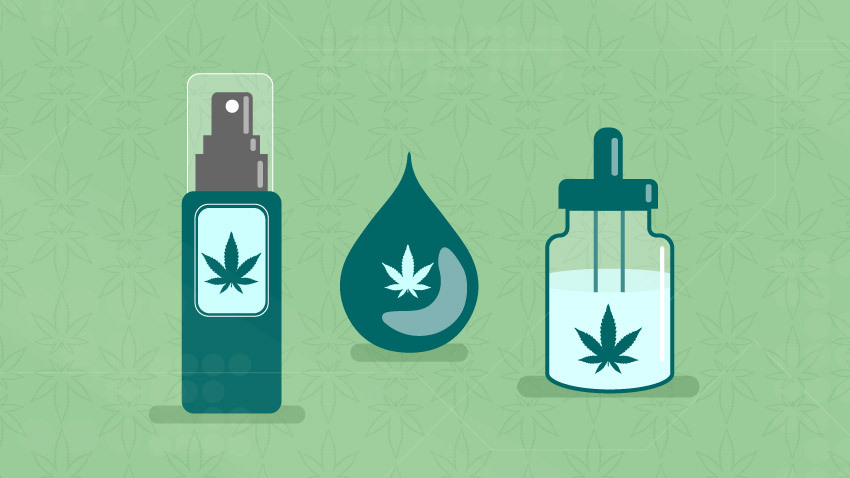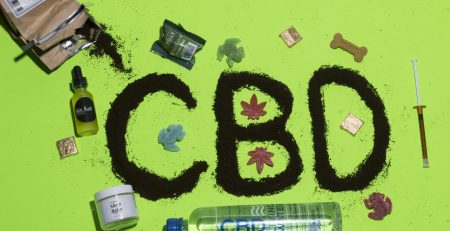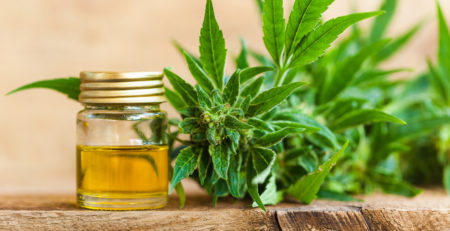How To Use CBD Oil For Pain
CBD has become very well known in our society as “the miracle plant”. With more research, experts could also discover that CBD alone actually can relieve pain. Early this year an animal study in Pain explored how CBD may interact with serotonin receptors. These play a role in pain, depression, and anxiety.
What Types Of Pain Can Cannabidiol (CBD) Treat?
CBD is known to help multiple forms of pain and mental illnesses. Such as, anxiety, depression, fibromyalgia, back pains, headaches, seizures, and epilepsy just to name a few.
CBD is not effective in treating every type of pain. And for that reason, it is especially important to understand your body and your own pain. Some ways to do this is to ask yourself: does it worsen with the weather, cause swelling, or is it persistent and stabbing? If you feel that you experience inflammatory or neuropathic pain, talk to your doctor. CBD supplementation could be right for you.
Cannabidiol can be an effective, non-psychotropic alternative to THC when it is effectively used. However, we are still in the infancy stage of incorporating CBD into health and medicine, so it is important to consult your physician when contemplating the use of CBD to treat pain.
[su_youtube url=”https://www.youtube.com/embed/Ci96MlZHu04?feature=oembed”]
How To Use CBD Oil For Pain Relief
Orally: You can add the oil to food or beverages and consume orally. This will take time for your body to digest depending on factors like your weight, metabolism, or the food you have eaten. It can take anywhere from 15 minutes to 2 hours. CBD oil for oral consumption is also available in capsule form, which you would take the same way you would take vitamins. Simply take the capsule orally and wash it down with water.
Sublingually: Administering CBD oil under the tongue is one of the quickest ways to experience relief. The active ingredients are absorbed directly into the bloodstream and will take anywhere from 5 to 15 minutes. However, you deal with the taste.
Topically: You can infuse lotions with CBD oil so that it can be applied topically directly to affected pain areas. By applying locally, you can reduce pain and inflammation and treat stiff, achy joints. Therapeutic salves are also sometimes available.
Figuring Out How Much to Take
Finding the right dose can take a bit of trial-and-error. Generally, patients will start with a higher dosage than they would with THC. While patients may begin with as little as 2.5 or 5 mg of THC, most patients will begin with a dose as high as 25 mg for oral administration (although possibly less). There are different ways to take CBD and each way has a different rate of absorption.
CBD is not psychoactive — meaning it will not get you “high.” Instead, research suggests that it may help
- Reduce anxiety and depression
- improve sleep
- Reduce seizures in people with epilepsy
- Soothe pain and inflammation
- Improve heart health
- Improve symptoms of inflammatory bowel disease (IBD)
No matter what condition you are trying to treat with CBD, giving yourself an adequate dosage is key — or it might not work for you. Studies analyzed in that review did not show that there is one universal dosage of CBD that everyone should take. Instead, it underscored the fact that different people (and, in animal studies, different animals) respond to different dosages of CBD. Most of the human studies use dosages anywhere between 20 and 1,500 milligrams (mg) per day.
It is worth remembering that there is still a lot about CBD that we do not know. As the cannabis industry grows, researchers will likely conduct more studies on cannabis, including marijuana and hemp, and its derivatives.
The amount of CBD you should take depends on a range of factors, including:
- your body weights
- the condition you are treating
- your individual body chemistry
- the concentration of CBD in each pill, capsule, drop, or gummy
In other words, there are a lot of variables that go into deciding how much CBD to take. Before trying CBD, be sure to talk to your doctor about an appropriate dosage and any potential risks.
Benefits and Uses of CBD Oil
Can Relieve Pain: Studies have shown that CBD may help reduce chronic pain by impacting endocannabinoid receptor activity, reducing inflammation, and interacting with neurotransmitters
In one study, rats found that CBD injections can reduced pain response to surgical incision. While another rat study found that oral CBD treatment can significantly reduce sciatic nerve pain and inflammation. Several human studies have found that a combination of CBD and THC is effective in treating pain related to multiple sclerosis and arthritis.
An oral spray called Sativex, which is a combination of THC and CBD, is approved in several countries to treat pain related to multiple sclerosis.
Could Reduce Anxiety and Depression: Some studies have found that cannabis might help anxiety. Others suggest that having anxiety is a risk factor for recreational marijuana use, or that using marijuana can make a person more vulnerable to anxiety.
Can Alleviate Cancer-Related Symptoms: CBD may help people with cancer manage some symptoms of the disease as well as side effects of treatment. Scientists are also looking into how CBD could aid cancer treatment. However, they need to research further.
May Reduce Acne: Based on recent scientific studies, CBD oil may help treat acne due to its anti-inflammatory properties and the ability to reduce sebum production. One test-tube study found that CBD oil prevented sebaceous gland cells from secreting excessive sebum, exerted anti-inflammatory actions, and prevented the activation of “pro-acne” agents like inflammatory cytokines. However, scientists still need to study the effects of CBD on acne.
Could Benefit Heart Health: What the research says about CBD and heart disease. CBD’s anti-inflammatory and antioxidative properties may be able to reduce risk factors that can lead to heart disease, like high blood pressure. It may also be able to reduce the risk of related conditions, like stroke
Other Benefits
Antipsychotic effects: Studies suggest that CBD may help people with schizophrenia and other mental disorders by reducing psychotic symptoms.
Substance abuse treatment: CBD has been shown to modify circuits in the brain related to drug addiction. In rats, CBD has been shown to reduce morphine dependence and heroin-seeking behavior.
Anti-tumor effects: In test-tube and animal studies, CBD has demonstrated anti-tumor effects. In animals, it has been shown to prevent the spread of breast, prostate, brain, colon and lung cancer.
Diabetes prevention: In diabetic mice, treatment with CBD reduced the incidence of diabetes by 56% and significantly reduced inflammation
We Want You Help Your Pain
Verde CBD Has 100% all high-quality CBD to help you become stress-free and relaxed. We carry everything from CBD gummies to CBD Tinctures and lotions. Contact us now by clicking here or give us a call at and start feeling better now.




